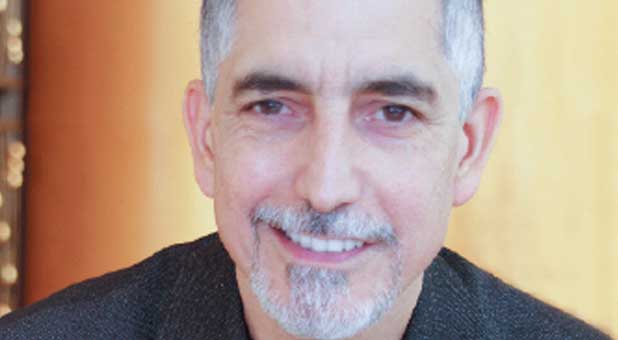There is presently a revolution taking place among those on the leading edge of change in the evangelical church. The result is a transition from a church mindset to a kingdom mindset in which the walls of church buildings are no longer able to contain the raw creative energy of Christ-followers who are committed to preaching and applying the Gospel of the Kingdom to all the world, including its systems and structures.
As political solutions and big government attempts to heal our land fail miserably, more people will look to faith-based partnerships and churches to find solutions. Hence the irrelevancy of old church patterns and traditions will become more noticeable in the decades to come.
Consequently, it behooves us to continue to study the contrasts between leading-edge kingdom practices and old, irrelevant religious church patterns that have failed to effectively evangelize and transform communities with the gospel.
The following is a contrast between leaders with a kingdom mindset and those with a church mindset.
I. Kingdom leaders interpret Matthew 28:19-20 as referring to discipling all nations. Church leaders believe it only refers to all individual ethnic peoples.
The body of Christ is now re-thinking the Great Commission scriptures of Mark 16:15 and Matthew 28:19-20. Instead of viewing them as commands to merely evangelize individual souls, now many are viewing the command in Mark 16 to ‘go into all the world and preach’ as a command to apply the gospel to both individual sinners and world systems. Matthew 28:19-20 is now regarded as the New Testament equivalent to the Cultural Mandate found in Genesis 1:28.
II. Kingdom leaders attempt to nurture and release world-class leaders who serve their communities. Church leaders nurture only those who serve in Sunday ministry.
Kingdom leaders understand that only 2 percent to 3 percent of those in their congregations are called to full-time church ministry. These leaders believe they are called to equip the saints for the work of the ministry which, in the kingdom, includes marketplace vocational ministry, not only ecclesial ministry. With this view, there is room for everyone in the congregation to be set apart and trained as a minister of the gospel.
III. Kingdom leaders understand and work with God’s common grace. Church leaders only understand and work with those who have experienced saving grace.
Kingdom leaders understand that God’s grace has been poured out to all of humanity so the world can function normally. Romans 13:1-7 calls civic leaders God’s ministers (diakanos or deacons). If God calls unredeemed leaders His ministers then kingdom leaders know they can also partner with political and community leaders, even if they are not in full agreement when it comes to faith and core values.
Church leaders only work with those that are in full agreement with their core religious values, thus insulating themselves from the world around them.
IV. Kingdom leaders have a biblical worldview that encompasses all of life. Church leaders have a semi-Gnostic Greek view of Scripture that regards only spiritual things as important.
Kingdom leaders know that the earth is the Lord’s and not the devil’s (Psalm 24)! They know that the Word became flesh. Thus, the material world is also sacred and something to be cultivated (Genesis 2:15).
Church leaders are only concerned with spiritual things like prayer, healing, the gifts and fruit of the Spirit, etc. These spiritual things are only really effective if they are applied to our walk with God and its concomitant love of neighbor as salt and light.
V. Kingdom leaders are working towards a new Christendom. Church leaders are only trying to produce individual Christians.
Kingdom leaders desire to interweave the principles of God’s Word into every fabric of culture so every nation and city favors Christianity and bases civic laws on biblical precepts.
Church leaders are not overly concerned with politics and economics but with adding new converts who, without a biblical worldview, will only perpetuate humanistic ungodly systems with their partial “spiritual” gospel.
VI. Kingdom leaders teach the church to embrace their secular communities before they experience conversion. Church leaders embrace people into their faith communities only after they experience salvation.
Kingdom leaders regard their cities and communities as gifts to the church and to the people who live in them. They embrace their communities in humility and send their members into their communities as servant leaders who will be the greatest problem solvers of the most challenging human needs.
Church leaders only embrace individuals in their communities after they have professed faith in Christ. Thus, they insulate and isolate themselves and their churches from the felt needs of their communities, yet are joyful as long as their churches are growing and their bills are paid.
VII. Kingdom leaders turn the world upside down (Acts 17:1-7). Church leaders restructure their local churches.
In Acts 17 it was said, when the apostles came into a community, that ‘those who turned the world upside down have come here also.’
Nowadays the typical church mindset is only concerned with what happens within the four walls of the church building. There are many churches that, if they closed down, the local community boards, police stations, and political leaders would barely notice they were gone!
VIII. Kingdom leaders articulate Christ as Lord over every culture. Church leaders preach Christ as only the head of the church.
Kingdom leaders recognize Jesus’ place as King of every secular king. This has vast cultural and political implications, and pressures the church to engage the secular arena.
Those with a church mindset only preach Christ as the head of the church and neglect Jesus’ function as King over the unredeemed world!
IX. Kingdom leaders shepherd whole communities. Church leaders shepherd only their church congregations.
Kingdom leaders understand they are called to communities, not only to local churches. Hence, they see themselves as chaplains and spiritual leaders of regions.
Church leaders feel no responsibility to their communities because they feel committed only to those who attend their Sunday services.
X. Kingdom leaders attempt to exorcise demons out of ungodly social systems. Church leaders only cast devils out of individual people.
Kingdom leaders understand that Jesus came to redeem systemic sin, not just individual sin (read Colossians 1:20).
Church leaders only feel called to deal with individual evil. Thus, they interpret passages such as Luke 4:18 as dealing with the individual poor and oppressed, neglecting the systemic reference from which it came. (Read Isaiah 61:1-4 to see that Luke 4:18 concerns redeeming and restoring desolate cities, not just individuals in need.)
XI. Kingdom leaders pray for God’s will to be done on earth as it is in heaven. Church leaders pray for revival in their churches.
The Lord’s Prayer (Luke 11) teaches us to pray that God’s will would be done and His kingdom would come on earth. Thus, kingdom leaders have as their prayer focus the kingdom being manifest on the earth.
Leaders with a church mindset are content with only the signs of the kingdom (healing and deliverance of individuals as found in Matthew 12:28 and Hebrews 2:1-3) instead of striving for a manifestation of the kingdom in their cities that impacts the quality of life politically and economically (Isaiah 61:3-4).
XII. Kingdom leaders believe for the gospel to economically lift whole communities. Church leaders believe for greater tithes and offerings to support their building projects and programs.
See an error in this article?
To contact us or to submit an article























